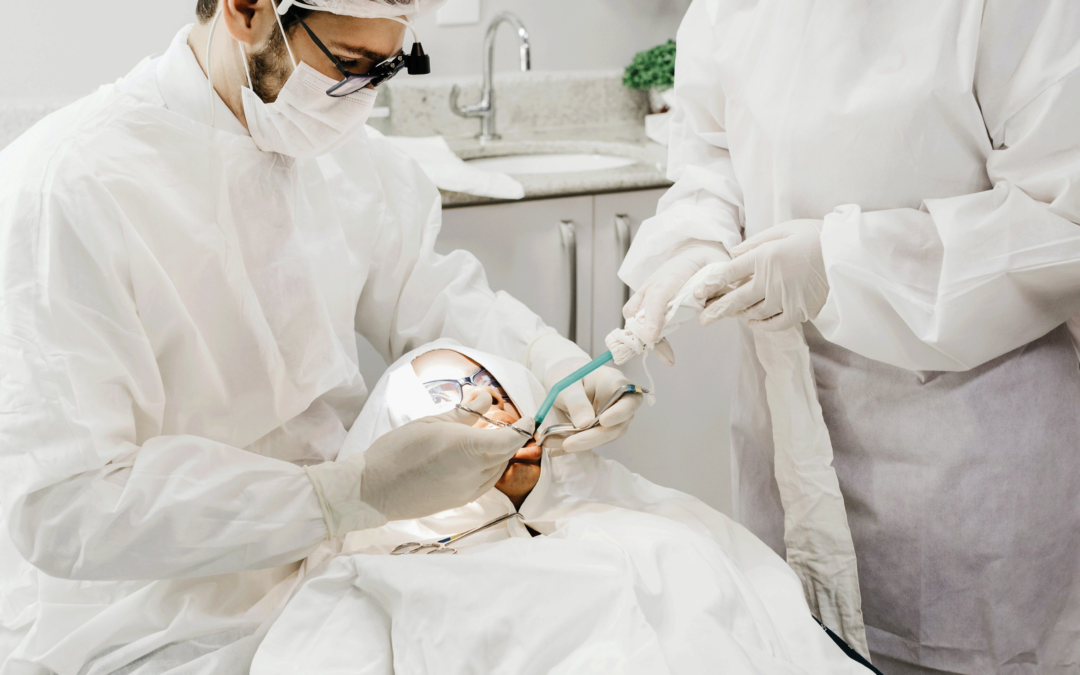Having a routine dental checkup twice a year is essential to your overall health and wellness. Many illnesses arise when proper measures to protect your oral health are not taken seriously, such as periodontal disease, tooth decay, even heart disease. These can have an enormous impact on those who have not taken the time to get their teeth checked out. This article explores the reasons why it is essential to get regular checkups.
Detect Underlying Health Concerns
Typically, dentists will have their patients get an X-Ray done once a year. This helps them see if there are any issues with the patient’s jaw, bones, or overcrowding in the mouth. Dentists will also check for signs of gum disease, oral cancer, or any tumor growth. This is something that cannot be detected at home by yourself.
Catching the small things before they turn into bigger problems is preventative action at work. There are many reasons why dental checkups are so important. One of the most important reasons for getting checkups is that they make you aware of the problems going on in your mouth while they are minor. This allows you to fix them before you need expensive and invasive procedures done, like a root canal.
Prevent Oral Disease
Periodontal disease is often caused by plaque and tartar building up in your gum lines. You can help prevent gum disease on your own by brushing and flossing daily. Even so, it is still recommended to get your gums checked out by your dentist. Dentists are able to get a better look at your mouth and thoroughly clean out any plaque or tartar build up.
Gingivitis is an oral disease with more than 200,000 reported cases among Americans each year. During routine checkups, the hygienist and dentist will check for gum disease. The good news is that Gingivitis is curable with proper oral hygiene and dental visits. However, if you start slacking on this routine, the more likely the gingivitis will return or develop into the more problematic periodontal disease.
No Toothaches Does NOT Mean No Cavities
Mild tooth decay usually does not have symptoms and can stay undetected for months before it starts to hurt. By visiting the dentist every 6 months, you can help catch a cavity early on and get it treated before it becomes a problem. This will help save you a lot of time and money because the more complex your cavity is, the more expensive treatment will be.
Different Types of Cavities
Smooth surface decay: This type of decay occurs on the outside surface of the teeth. It happens when bacteria is not removed causing plaque to build up. It’s the least serious type of decay and can be treated with fluoride. Regularly flossing your teeth helps with preventing this type of decay.
Root decay: This decay type is most common among older adults who are more likely to have receding gums. It occurs on the surface of the roots of the teeth.
Pit and fissure decay: Pit and fissure decay occurs on the chewing surfaces of the back teeth. It can be prevented with proper tooth brushing; however, if you’re inconsistent in your oral hygiene, this type of decay can become very serious, very fast.
Fillings Have a Life Expectancy
A filling is used to repair a small hole, or cavity, in a tooth. A dentist removes the decayed tooth tissue and then fills the space with a filling material to repair the cavity.
To maintain your fillings, they must be replaced every few years. Sometimes you’ll have to replace them sooner if they wear down quickly. As long as you floss and brush your teeth like your dentist tells you to then your fillings will last longer. Seeing a dentist will give you that sense of comfort knowing whether or not your fillings are still holding in place or if they need to be replaced.
Will You Need Temporary Fillings?
You might need temporary fillings if more than one appointment is needed for your filling. For example, before placement of gold fillings and for indirect fillings that use composite materials. You will have to get fillings installed following a root canal. Fillings will have to be put in to allow your tooth’s nerve to “settle down” if the pulp becomes irritated.
Temporary fillings are just that – temporary. They are not meant to last. They will usually fall out, fracture, or wear out within a month. Make sure you have your temporary filling replaced with a permanent one within its life expectancy. If you don’t, your tooth could become infected or you can develop other complications.
Other Issues Preventative Care Protects You From
An infected tooth can turn into an infection that passes through your blood and can affect your heart health or cause stroke. Studies have shown that people who go to the dentist regularly, do decrease their risk of developing a heart attack or stroke.
Research shows a link between gum disease and inflammation that can precede heart attacks, strokes, and sudden vascular events. For the time being, the exact nature of the cause-and-effect relationship is unclear. For people with heart disease of blood vessels, inflammation caused by gum disease can add to that process.
How Oral Infections Cause Heart Problems
How can your oral health have any correlation to your heart when they are two different functioning parts of the body? Researchers think that bacteria found in gum disease can travel throughout the body, triggering inflammation in the heart’s vessels and causing infection in heart valves. The risk is even greater when high cholesterol is added to the mix. Researchers have uncovered oral bacteria in the fatty deposits of people with atherosclerosis, a disease in which plaque builds up in the arteries. Untreated, those deposits can narrow arteries or break loose and clog them, causing a heart attack or stroke.
Sources:

